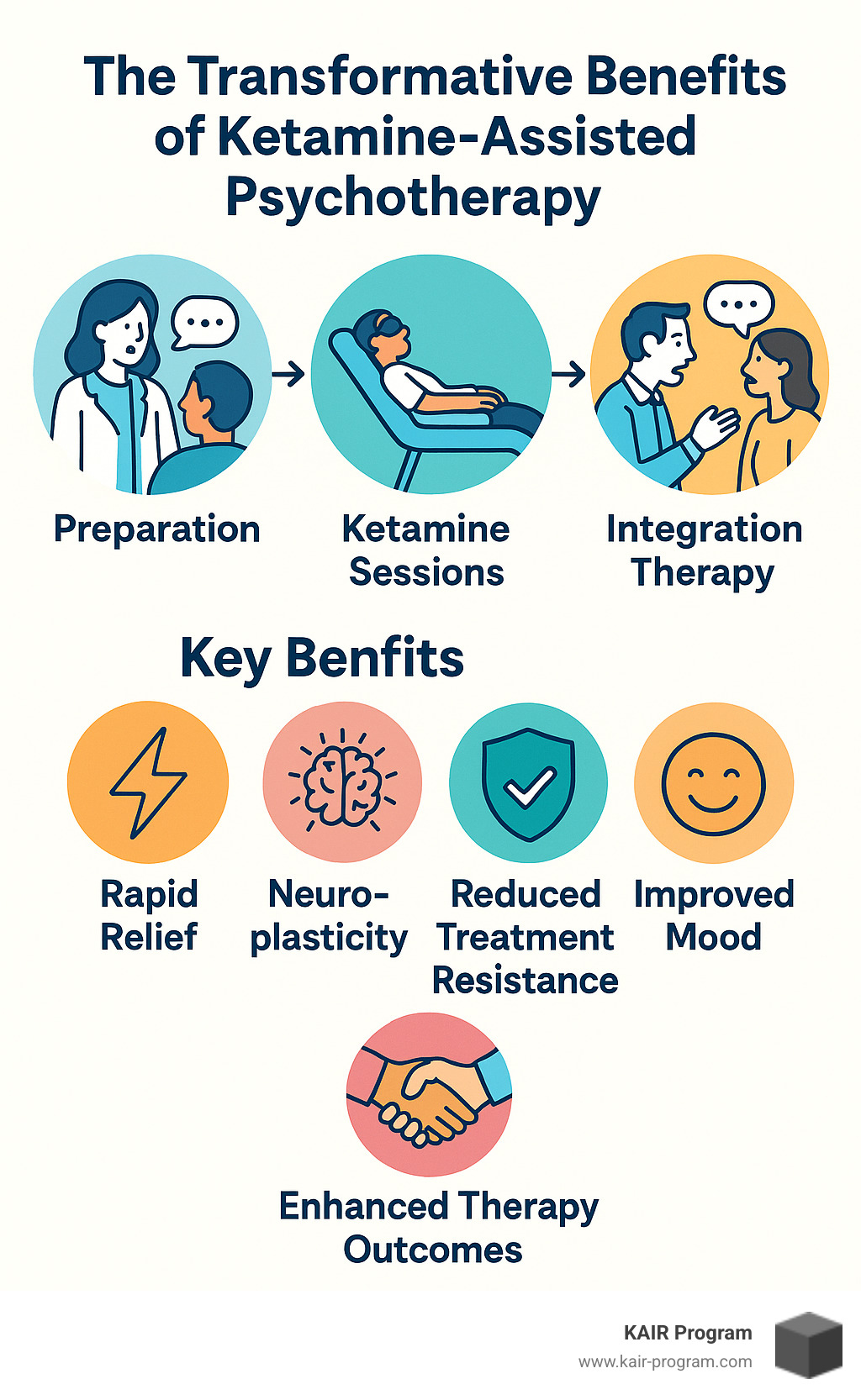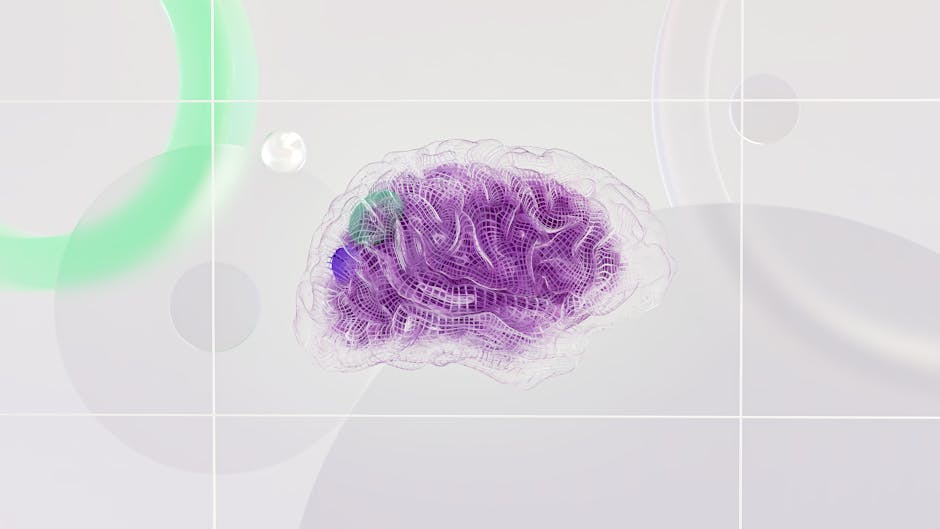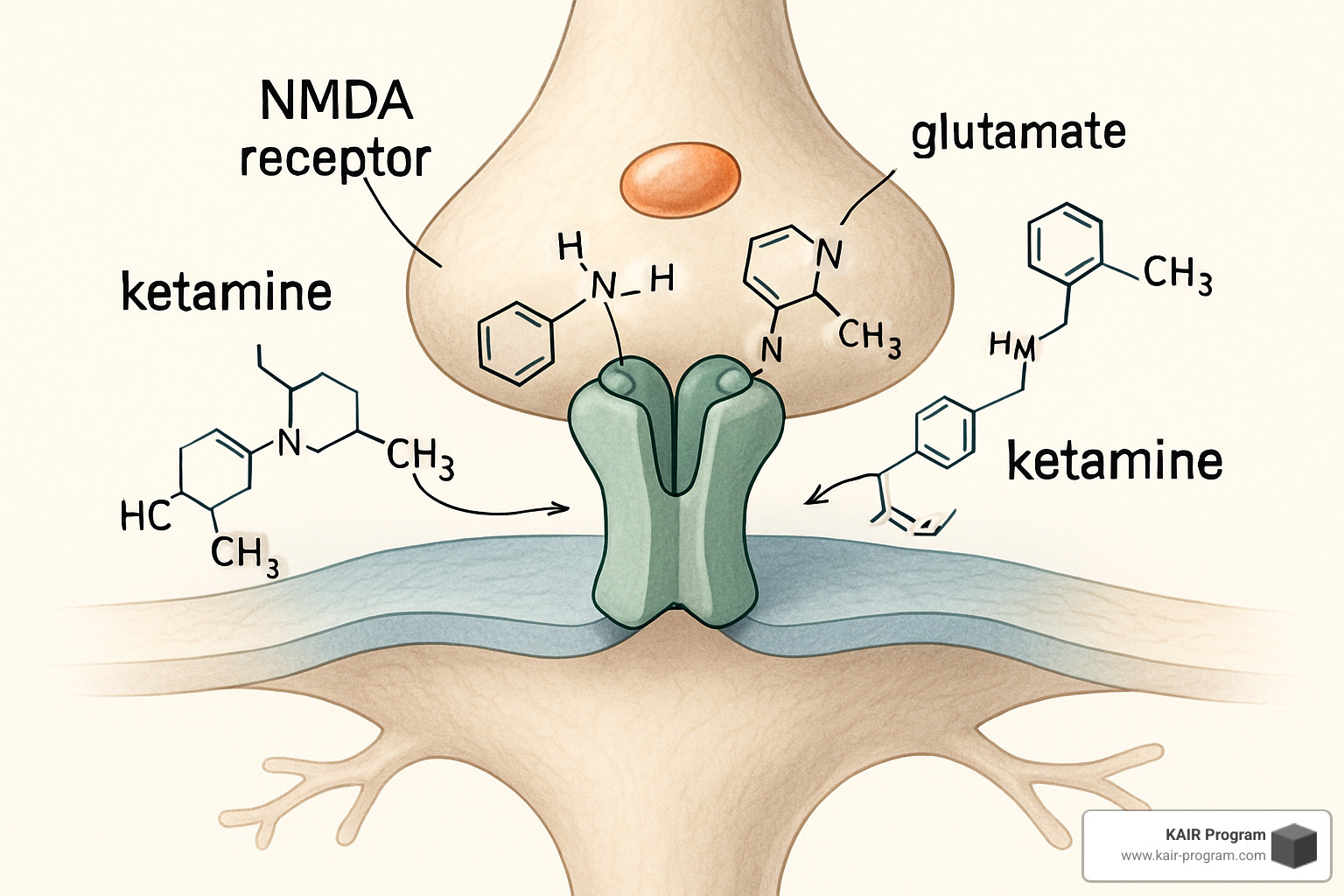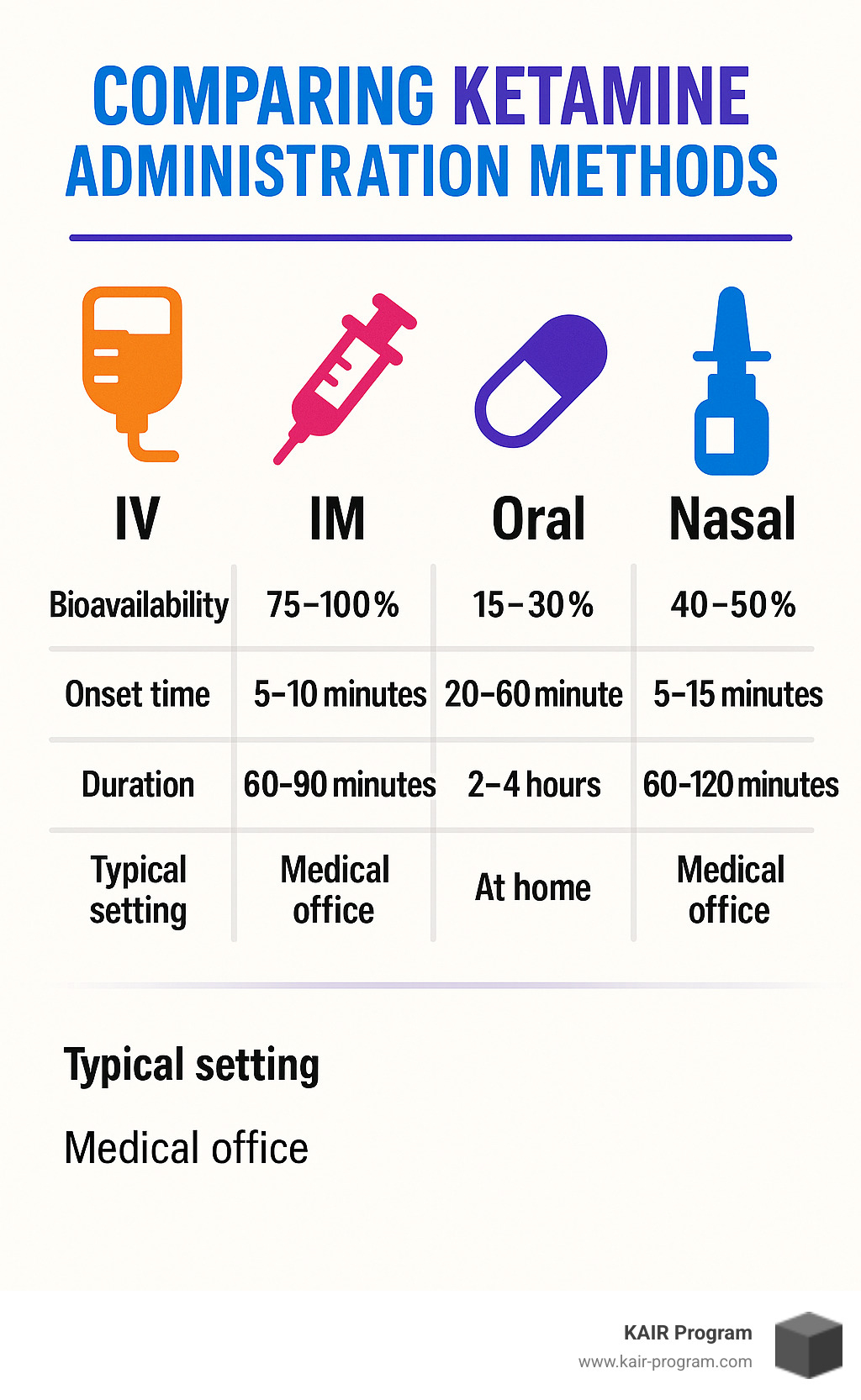Feeling Better Faster with Ketamine-Assisted Psychotherapy
The Transformative Benefits of Ketamine-Assisted Psychotherapy

The benefits of ketamine-assisted psychotherapy are revolutionizing mental health treatment for those who haven't found relief through traditional approaches. If you're searching for rapid, effective treatment for conditions like depression, PTSD, or anxiety, here's what you need to know:
Key Benefits of Ketamine-Assisted Psychotherapy:
- Rapid relief - Often within hours or days, not weeks or months
- Effective for treatment-resistant conditions - 60-70% response rate in those who didn't improve with standard treatments
- Neuroplasticity improvement - Creates a window for lasting brain changes
- Reduced suicidal thoughts - Independent of mood improvement
- Improved psychotherapy outcomes - Accelerates emotional processing and insight
Ketamine-assisted psychotherapy (KAP) combines controlled doses of ketamine with structured psychotherapy sessions. Unlike traditional antidepressants that can take 4-6 weeks to work, ketamine often produces significant improvements within hours to days. This rapid action provides hope for people who have struggled for years without relief.
"Think of ketamine as a therapy accelerator," explains one psychedelic psychiatrist. The medication creates a 1-2 week window of heightened neuroplasticity where therapeutic insights and lifestyle changes can take deeper root.
The combination is powerful: ketamine helps surface unconscious material and creates openness to change, while skilled therapy helps process these insights and integrate them into daily life. This synergy produces more durable results than either ketamine or therapy alone.
I'm Bambi Rattner, PsyD, and as a psychologist with decades of experience seeking more effective healing methods for my clients, I've witnessed the transformative benefits of ketamine-assisted psychotherapy for those who previously felt stuck in their healing journey.

11 Changeal Benefits of Ketamine-Assisted Psychotherapy
When traditional treatments fall short, ketamine-assisted psychotherapy (KAP) offers hope through its unique blend of medicine and therapy. At KAIR Program, we've witnessed remarkable changes in our clients. Here's what makes this approach so powerful:
Rapid Symptom Relief: One of the Core Benefits of Ketamine-Assisted Psychotherapy
The speed at which ketamine works often astonishes both clients and clinicians alike. While conventional antidepressants typically take weeks to show effects, ketamine frequently delivers noticeable improvement within hours to days.
Benefits of ketamine-assisted psychotherapy include this remarkably fast action—studies show ketamine begins working within just 1-24 hours after administration. About 60-70% of patients with treatment-resistant depression experience significant improvement, and perhaps most critically, research shows ketamine can rapidly decrease suicidal thoughts, often independently of its mood-lifting effects.
A groundbreaking Yale University study demonstrated that ketamine therapy significantly reduced depression symptoms within just four hours, with effects lasting up to several days or longer. For someone who has struggled for years, this rapid relief can be truly life-changing.
One client described her experience beautifully: "After my first ketamine session, it felt like a heavy blanket had been lifted off me. For the first time in years, I could imagine a future without constant depression."
Neuroplasticity & Lasting Change: Deeper Benefits of Ketamine-Assisted Psychotherapy
What makes ketamine truly fascinating is its ability to promote neuroplasticity – your brain's natural capacity to form new connections and pathways.

Ketamine creates what scientists call a "neuroplastic window" lasting approximately 1-2 weeks after each session. During this period, your brain becomes more receptive to forming new connections and breaking old patterns, making it the perfect time for meaningful therapeutic work.
This neuroplasticity shows up in several ways: improved synaptogenesis through increased brain-derived neurotrophic factor (BDNF), a glutamate surge that improves learning and memory, and actual "brain reshaping" as ketamine reactivates and grows synapses in mood-regulating regions that may have weakened during chronic depression.
This explains why combining ketamine with therapy is so powerful. The medication creates fertile ground where therapy can take root, producing changes that last. When you engage in therapy during this window, insights and new behaviors are more likely to persist long after the direct effects of ketamine have faded.
Scientific research on how ketamine works continues to reveal fascinating details about its mechanisms, including effects on glutamate, BDNF, and neuroinflammation.
From PTSD to OCD – Conditions Helped
The benefits of ketamine-assisted psychotherapy reach far beyond depression. At KAIR Program, we've seen remarkable results across many challenging conditions:
For PTSD, ketamine helps disrupt traumatic memory reconsolidation, allowing you to process difficult experiences with less emotional overwhelm. A 2019 study showed significant symptom reduction in military veterans with PTSD.
Those with anxiety disorders often find relief as ketamine rapidly reduces symptoms of generalized anxiety and social anxiety. The altered state helps gain perspective on anxious thoughts that normally feel overwhelming.
OCD symptoms can also improve, particularly when ketamine sessions are combined with exposure therapy during that neuroplastic window. The medication seems to make it easier to face fears with less distress.
For bipolar depression, ketamine has shown efficacy during depressive phases, though this requires careful medical monitoring and expertise.
Those struggling with substance use disorders may find ketamine reduces cravings and promotes abstinence. One study showed 66% alcohol abstinence at 12 months following ketamine therapy.
Even chronic pain conditions can benefit from ketamine's dual action—its analgesic properties combined with psychological benefits address both the physical and emotional aspects of chronic pain.
Ketamine isn't typically a first-line treatment. We usually recommend it when traditional approaches haven't provided adequate relief or when rapid improvement is urgently needed. But for those who qualify, the transformative potential can be life-changing.
How Ketamine Works in the Brain + Therapy Room
Understanding the dual mechanisms of ketamine – both neurobiological and psychological – helps explain why this approach is so effective.
Neurobiological Mechanisms
Ketamine works differently from traditional antidepressants that target serotonin, norepinephrine, or dopamine. Instead, it primarily affects the glutamate system through several key actions:
When ketamine enters your brain, it starts a fascinating cascade of events. First, it blocks what scientists call NMDA receptors – think of these as tiny locks on your brain cells. This blockade triggers a sudden surge of glutamate, an important brain chemical that helps cells communicate. This glutamate rush then stimulates the production of BDNF (brain-derived neurotrophic factor), which acts like fertilizer for your brain cells, helping them grow new connections.
Perhaps most interestingly, ketamine temporarily disrupts your brain's default mode network – the mental "autopilot" that can get stuck in negative thought patterns when you're depressed or anxious. This disruption gives your brain a chance to reset these patterns.

Scientific research on NMDA receptors continues to deepen our understanding of their critical role in learning, memory, and mood regulation. It's like ketamine helps "reboot" brain circuits that aren't functioning optimally.
Psychological Mechanisms
In the therapy room, the magic of ketamine isn't just biological – it's deeply psychological too.
The mild dissociative state that ketamine creates serves as a therapeutic window. Many clients describe it as being able to step back and observe their thoughts and feelings without being overwhelmed by them. As one client beautifully put it: "During my ketamine session, I could see my trauma from a distance, without being overwhelmed by it. In the therapy afterward, I was able to process what happened in a way I never could before."
This emotional openness is precious in therapy. When defenses are lowered, clients often access feelings and memories that were previously walled off. Combined with the neuroplasticity effects, this can lead to accelerated insights – breakthroughs that might have taken months or years in traditional therapy settings.
The skilled therapists at KAIR Program specialize in helping clients make meaning of their ketamine experiences through integration therapy. This crucial step transforms fleeting insights into lasting change.
The KAP Protocol
At KAIR Program, we've developed a structured protocol that maximizes the benefits of ketamine-assisted psychotherapy while ensuring safety and comfort:
We begin with comprehensive screening – both medical and psychological – to make sure ketamine is appropriate for you. Safety always comes first. Before your ketamine session, we'll have preparation sessions to build trust, set meaningful intentions, and prepare you for the experience.
The environment matters enormously, so we carefully create a comfortable, safe setting with supportive elements like eye masks and specially selected music that improves the therapeutic journey.
For the ketamine administration itself, we offer several options. Intravenous (IV) delivery provides the highest bioavailability and precise control. Intramuscular (IM) injections offer high absorption with less invasiveness. Oral/sublingual options are convenient, though they have lower bioavailability. We also offer nasal spray, including FDA-approved esketamine (Spravato) for treatment-resistant depression.
Throughout your ketamine session, skilled clinicians remain present to provide support. You're never alone in this process.
Integration: Turning Insights into Action
Integration might be the most important phase of ketamine-assisted psychotherapy. Without it, profound insights can fade like dreams upon waking.
At KAIR Program, we emphasize integration through our intensive retreat model. In the days following ketamine sessions – that critical neuroplastic window when your brain is most receptive to change – we provide robust support to help you process and apply what you've learned.
We encourage journaling to capture insights while they're fresh. We incorporate somatic (body-centered) practices to help process emotions that may have surfaced. Together, we identify negative thought patterns that no longer serve you and develop strategies to challenge them. We also help you implement practical lifestyle changes that support your healing journey.
Many clients find that simple acts like morning meditation, nature walks, or creating boundaries in relationships become powerful tools for maintaining progress when practiced during this neuroplastic window.
This comprehensive approach ensures that the benefits of ketamine-assisted psychotherapy extend far beyond the immediate effects of the medication, creating lasting change that continues to unfold in your daily life.
Who Can (and Can't) Benefit From KAP?
Not everyone will experience the same benefits of ketamine-assisted psychotherapy, despite its impressive results for many. Understanding if you're a good candidate can save you time, money, and potential disappointment.
Ideal Candidates
Ketamine therapy tends to work best for people who've been stuck in their healing journey. If you've tried multiple treatments without finding relief, KAP might be your breakthrough option.

You might be an excellent candidate if you're dealing with treatment-resistant depression where at least two different antidepressants haven't helped. Similarly, those with chronic PTSD who still struggle despite trying trauma therapies often find KAP offers a new pathway to healing.
People with severe anxiety disorders that haven't responded to standard treatments can also find relief. For those experiencing suicidal thoughts requiring rapid intervention, ketamine's quick action can be literally life-saving.
Generally, KAP works best for medically stable adults typically between 18-65 years old without certain health complications.
"Many of our clients come to us after years of trying everything else," says Dr. Rattner. "They're often surprised by how quickly they can make progress once ketamine creates that window of neuroplasticity."
Who Should Avoid Ketamine Therapy
Safety comes first, and certain conditions make ketamine therapy risky or inappropriate.
If you have a psychotic disorder like schizophrenia or schizoaffective disorder, ketamine could potentially worsen symptoms. Those with uncontrolled high blood pressure should avoid ketamine as it can temporarily increase blood pressure during sessions.
Pregnancy and breastfeeding are contraindications since the safety hasn't been established. Similarly, active substance use disorders, especially with alcohol or stimulants, generally make ketamine therapy inadvisable.
People with severe liver or kidney disease may not be good candidates since these organs help metabolize ketamine. Certain cardiac conditions like unstable angina or recent heart attack also increase risks.
Before starting treatment, we'll conduct a thorough medication review since certain medications may interact with ketamine or reduce its effectiveness. This personalized screening ensures we're offering the safest, most effective care possible.
Typical Timeline & How Long Benefits Last
One of the most common questions we hear is: "How long will the effects last?" The answer varies from person to person, but we can offer some general guidelines.
A single ketamine session can create remarkable shifts, but without additional support, these effects typically last only 4-7 days. That's why we recommend a series of treatments rather than a one-and-done approach.
Most protocols include an initial series of about 6 sessions over 2-3 weeks. After this, we'll evaluate your response and develop a personalized maintenance plan based on how you're feeling and functioning.
The duration of benefits depends largely on whether you're receiving integration therapy alongside ketamine:
Without integration therapy, benefits may fade within 1-2 weeks after a session.
With proper integration work, effects can extend to several weeks or months.
Following a complete protocol with both ketamine and skilled therapy, many patients maintain improvements for 3+ months.
A study published in the Journal of Affective Disorders in 2021 found that patients receiving ketamine-assisted psychotherapy for depression experienced sustained improvements for up to three months after treatment.
For ongoing benefit, most people adopt a maintenance schedule with booster sessions typically every 1-3 months as needed. Combining these with ongoing integration therapy and complementary practices like meditation, exercise, good nutrition, and sleep hygiene can significantly extend the benefits.
At KAIR Program, we don't just administer ketamine and send you home. We develop individualized maintenance plans that consider your unique response pattern and integration success, helping you maintain progress for the long term.
Safety, Side Effects & Myth-Busting
Let's talk honestly about safety – because I know it's probably one of your biggest concerns when considering ketamine therapy. The good news? When done properly, ketamine-assisted psychotherapy has a reassuring safety profile.
Common Side Effects
Most people experience some side effects during or shortly after their ketamine session, but they're typically mild and fade quickly:
That feeling of floating outside your body? That's dissociation – and while it might sound scary, it's actually part of the therapeutic process. Many clients describe this sensation as peaceful or insightful rather than frightening.
You might also experience some dizziness or nausea (usually mild), temporary increases in blood pressure (which we monitor closely), some visual changes like seeing patterns or colors, and feeling tired afterward.
The great thing is that these effects typically resolve within an hour after your session ends. As one KAIR client put it, "The side effects were so temporary and mild compared to the weeks of nausea I experienced starting traditional antidepressants."
Long-term Considerations
The research on long-term ketamine therapy is still growing, but what we know so far is reassuring:
When used in controlled medical settings like KAIR Program, the risk of dependency is remarkably low. This isn't recreational use – it's carefully monitored therapeutic dosing with substantial breaks between sessions.
No significant cognitive impairment has been observed with therapeutic dosing schedules. The bladder issues sometimes mentioned in ketamine articles? Those are primarily associated with frequent recreational use at much higher doses than we use in therapy. Similarly, liver impacts are minimal with standard treatment protocols.
Safety Protocols
At KAIR Program, safety isn't just a priority – it's our foundation. Throughout your session, we continuously monitor your vital signs including blood pressure, heart rate, and oxygen levels. Qualified healthcare professionals oversee all treatments, and while rarely needed, we have emergency protocols in place.
For Spravato (esketamine), the FDA has established a Risk Evaluation and Mitigation Strategy (REMS) program that provides additional safety oversight. The FDA approval of esketamine in 2019 represented a significant validation of ketamine's safety profile when used appropriately for treatment-resistant depression.
Myth-Busting
Let's clear up some common misconceptions:
"Isn't this just like street ketamine?" Not at all. Therapeutic ketamine uses precisely controlled doses in medical settings with psychological support – worlds apart from recreational contexts. The intention, setting, support, and integration make this a completely different experience.
"Don't I need to have a full psychedelic trip for it to work?" While the dissociative experience can be therapeutic, sub-dissociative doses still provide significant benefits of ketamine-assisted psychotherapy for some conditions. The healing happens at multiple levels.
"This seems experimental and unproven." Actually, there's robust research supporting ketamine's efficacy for several mental health conditions, with FDA approval for esketamine confirming its legitimacy as a treatment option.
"Won't I become addicted?" When administered in clinical settings with appropriate protocols, addiction risk is minimal. The controlled frequency and therapeutic context are fundamentally different from patterns that lead to substance use disorders.
Comparing Administration Methods
Different ways of receiving ketamine offer varying experiences and benefits:

IV (intravenous) administration provides the most precise control and highest bioavailability, while intramuscular (IM) injections offer nearly the same benefits with less invasiveness. Oral/sublingual options are more convenient but have lower bioavailability, and nasal spray (like FDA-approved Spravato) offers a good middle ground.
At KAIR Program, we'll help determine which method might work best for your specific situation, considering your medical history, comfort level, and treatment goals. The right administration method is the one that helps you feel safe while accessing the powerful benefits of ketamine-assisted psychotherapy that can transform your healing journey.
What to Expect Before, During & After a Session
Walking into your first ketamine-assisted psychotherapy session can feel both exciting and nerve-wracking. Knowing what happens at each stage can help you feel more at ease and get the most from your experience. Here's a friendly guide to the journey:
Before the Session
Preparation isn't just helpful—it's essential for a meaningful ketamine experience. Your KAIR team will guide you through several important steps:
First, you'll complete a thorough medical evaluation to ensure ketamine is safe for your unique situation. This is when we review your health history and answer any questions you might have.
Next comes intention setting—one of my favorite parts of preparation. Working with your therapist, you'll explore what healing or insights you hope to gain. Think of this as setting your internal GPS for the journey ahead.
On a practical level, you'll need to arrange transportation (you absolutely cannot drive after ketamine) and follow fasting guidelines if recommended for your specific administration method. We'll also review your current medications, as some may need temporary adjustment.
On the day of your session, wear your most comfortable clothes—think "Sunday lounging" attire. Many clients also bring a meaningful personal item like a special blanket, photo, or small object that provides comfort. Most importantly, try to arrive with an open, curious mindset—this receptivity creates fertile ground for healing.
During the Session
Your ketamine journey typically unfolds in three distinct phases over about 60-90 minutes:
The experience begins with administration via your chosen method—IV, IM, oral, or nasal. Within 5-15 minutes, you'll notice the onset phase beginning. Most people describe feeling a gentle wave of relaxation or lightness washing over them. Some notice changes in perception or sensation.
During the peak experience (20-60 minutes), you'll likely experience the dissociative effects that make ketamine unique. This might feel like observing your thoughts from a distance or experiencing unusual perspectives. Many clients report this dissociation creates a valuable "breathing space" between themselves and their usual thought patterns. This is often when meaningful insights arise.
"During my session, I could see my anxiety as something separate from me for the first time," one client shared. "It wasn't who I was—just something I was experiencing."
Throughout the entire process, your therapist remains present, offering gentle guidance when needed and ensuring your physical and emotional safety. We typically use eyeshades and carefully selected music to improve your internal journey.
As the effects begin to subside (30-60 minutes), you'll enter the resolution phase, gradually returning to normal consciousness. This transition is usually gentle and provides a natural opportunity to begin processing your experience.
After the Session
The hours and days following your ketamine session are precious—this is when the benefits of ketamine-assisted psychotherapy truly take root.
Immediately after your session, you'll rest in our comfortable recovery lounge. This gentle transition space allows you to begin processing your experience while still under our care. We'll have a brief conversation about what emerged, though deeper integration comes later.
When it's time to leave, a responsible adult must accompany you home—this is non-negotiable for your safety. The dissociative effects will have subsided, but your perception may still be altered.
The real integration work begins in the following days. Within 24-48 hours, you'll have a dedicated integration session with your therapist to explore insights and develop practical ways to apply them to your daily life.
Many clients find journaling incredibly helpful during this period—capturing fleeting insights while they're still fresh. Your brain is in a unique state of neuroplasticity right now, making it the perfect time to establish new thought patterns and habits.
Self-care becomes especially important after ketamine treatment. Your body and mind need gentle support through:
- Staying well-hydrated
- Avoiding alcohol for at least 24-48 hours
- Limiting screen time immediately after sessions
- Spending time in nature if possible
- Practicing mindfulness or gentle meditation
- Postponing major decisions for 24 hours
At KAIR Program, our retreat model shines during this crucial integration period. Rather than sending you home to steer these waters alone, we provide continuous support throughout the entire process. Our team remains available to guide you through processing your experience and implementing meaningful changes—ensuring you receive the full benefits of ketamine-assisted psychotherapy.
Frequently Asked Questions about Ketamine-Assisted Psychotherapy
Does insurance cover KAP?
When it comes to paying for ketamine-assisted psychotherapy, the insurance landscape is still evolving. Here's what you should know:
The therapy component of KAP is often covered by insurance when provided by licensed mental health professionals. However, the ketamine itself typically isn't covered when used off-label for mental health conditions. This creates a split situation where you might get partial coverage.
If you're using FDA-approved Spravato (esketamine) specifically for treatment-resistant depression, you may have better luck with insurance coverage, though prior authorization is usually required.
Most clients should expect out-of-pocket costs ranging from $250-600 per session, with the exact amount depending on the administration method and your provider's fee structure.
At KAIR Program, we understand that cost can be a barrier to healing. We work closely with clients to make treatment as accessible as possible and can provide documentation that might help with insurance reimbursement. Many clients find that the significant benefits of ketamine-assisted psychotherapy justify the investment in their mental health.
How many sessions will I need?
This is one of our most common questions, and the honest answer is: it depends on your unique situation.
Most people start with an initial protocol of about 6 sessions spread over 2-3 weeks. After this initial series, we'll evaluate your response together to determine next steps.
Some clients achieve lasting results after just the initial series, while others benefit from periodic maintenance sessions. These maintenance sessions might be monthly at first, then gradually spaced out to quarterly as your improvements stabilize.
For each ketamine session, you'll typically have 1-3 integration therapy sessions to help process insights and make lasting changes. These are crucial for changing the ketamine experience into real-life improvements.
Your KAIR provider will work with you to develop a personalized treatment plan based on your specific needs and how you respond to the initial sessions. We're committed to finding the right rhythm that works for your healing journey.
Are the psychedelic effects required for healing?
Many people wonder if they need to have a full psychedelic experience to benefit from ketamine therapy. The answer isn't straightforward.
Research presents mixed findings. Some studies suggest a correlation between the dissociative effects and antidepressant response, while others show benefits with minimal dissociation. It seems to vary significantly between individuals.
Some clients report their most profound healing comes from insights gained during the dissociative state. Others experience substantial mood improvements without significant altered consciousness. Both paths can lead to healing.
Lower, sub-dissociative doses that don't produce strong psychedelic effects can still be remarkably effective for certain conditions, particularly pain and some forms of depression.
At KAIR Program, we believe in personalizing the experience. We'll tailor your dosage to match both your comfort level and therapeutic needs, recognizing that the benefits of ketamine-assisted psychotherapy can occur through various mechanisms. Our goal is your healing, not pushing you into an experience that feels overwhelming.
Is ketamine therapy safe long-term?
When considering any ongoing treatment, safety is naturally a top concern. The current research on ketamine therapy is reassuring when the treatment follows medical guidelines.
Therapeutic ketamine protocols show a favorable safety profile when administered by qualified professionals. Regular assessment of your mental health, cognitive function, and physical health helps ensure continued safety.
Appropriate spacing between sessions is important - this isn't a daily medication, and the intervals between treatments help minimize potential risks. Most maintenance protocols space treatments weeks or months apart.
It's worth noting that long-term studies beyond 1-2 years are still somewhat limited, as ketamine therapy for mental health is relatively new. Your KAIR provider will discuss potential long-term considerations specific to your health history and treatment plan during your consultation.
How does ketamine compare to traditional antidepressants?
Ketamine therapy differs from conventional antidepressants in several important ways that might make it a better fit for your needs.
The most dramatic difference is speed of onset. While traditional medications often take 4-6 weeks to show effects, ketamine can provide relief within hours or days. For someone in significant distress, this rapid action can be life-changing.
The biological mechanism is completely different too. Traditional antidepressants work on monoamine systems (like serotonin and norepinephrine), while ketamine primarily affects the glutamate system. This explains why ketamine can help people who haven't responded to conventional treatments.
Instead of taking medication daily on your own, ketamine involves periodic supervised sessions in a therapeutic setting. This means fewer daily medications to remember but requires scheduling regular appointments.
Perhaps most importantly, ketamine therapy is designed to work hand-in-hand with psychotherapy. The benefits of ketamine-assisted psychotherapy come from this powerful combination - the medication creates openings that skilled therapy helps you steer and integrate.
Many of our clients use ketamine therapy alongside traditional medications, while others gradually transition from conventional antidepressants to ketamine-based approaches under careful medical supervision. Your treatment plan will be custom to your specific needs and medical history.
Conclusion
The benefits of ketamine-assisted psychotherapy have truly transformed the mental health landscape, offering a guide of hope for those who've walked the long, often frustrating road of conventional treatments without finding relief. What makes this approach so powerful isn't just the medication itself—it's the thoughtful combination of ketamine's brain-changing effects with compassionate, skilled therapy that creates the perfect conditions for deep healing.
At KAIR Program, we've had the privilege of witnessing remarkable changes through our retreat model. There's something almost magical about seeing someone who's struggled for years suddenly find a new perspective, a renewed sense of possibility, and tangible relief from symptoms that once seemed permanent.
Our ketamine-assisted intensive retreats create a healing cocoon where you can fully immerse in the process. We combine ketamine's neurobiological gifts with trauma-focused therapy in an environment specifically designed to help you feel safe, supported, and ready for change. This integration is key—it's what turns a temporary chemical shift into lasting emotional and behavioral growth.
For those living with treatment-resistant depression, the weight of PTSD, the constant hum of anxiety, or other conditions that have resisted traditional approaches, ketamine-assisted psychotherapy offers something precious: a different path forward. Not just temporary relief, but an opportunity to build a foundation for lasting well-being by rewiring old patterns while your brain is most receptive to change.
Everyone's healing journey looks different. Some find profound relief after just a few sessions, while others benefit from a more extended approach with periodic maintenance. What remains consistent is the potential for this treatment to accelerate healing in ways that can feel nothing short of revolutionary.
If you've been struggling and wondering if there might be another option, we invite you to learn more about our ketamine-assisted retreats. Our integrative approach might be the missing piece in your healing journey—a chance to not just feel better temporarily, but to create lasting, meaningful change.
The most profound benefits of ketamine-assisted psychotherapy emerge when skilled therapeutic guidance helps transform those brief windows of neuroplasticity into enduring shifts in how you see yourself, your past, and your possibilities for the future. And that change—from suffering to wholeness—is what this work is ultimately all about.

